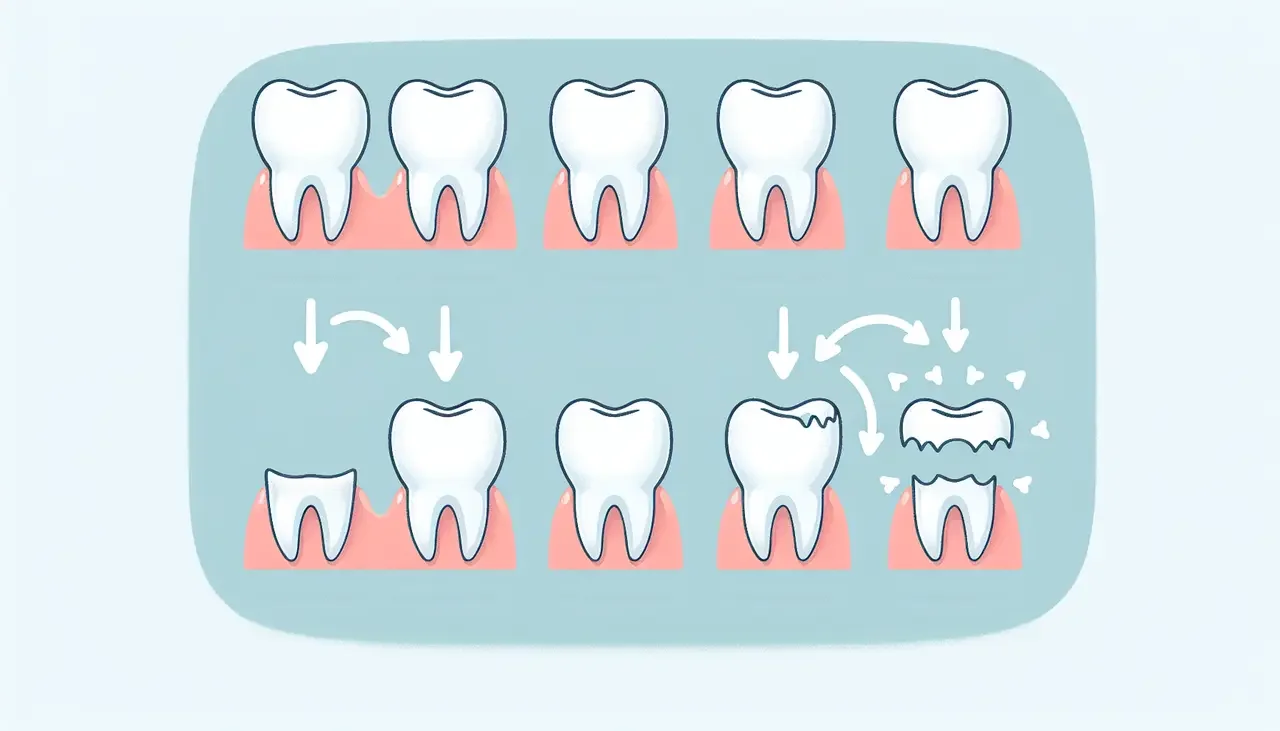What Happens If I Don't Replace a Missing Tooth?
Missing a tooth might not seem like a big deal at first, but it can lead to some surprising consequences over time. In this FAQ, we'll explore the various effects of not replacing a missing tooth and the potential impacts on your oral health and well-being.
Impact on Oral Health
When a tooth is missing, the neighboring teeth might shift into the empty space, leading to misalignment and problems with your bite. This can result in increased wear on your other teeth, making dental health issues more likely.
The misalignment caused by missing teeth doesn't just affect the aesthetics of your smile; it can also make it harder to maintain good oral hygiene. Crooked or crowded teeth are more difficult to clean effectively, increasing the risk of plaque buildup and, consequently, tooth decay and gum disease.
Furthermore, shifting teeth can create small crevices that can become trapped with food particles. Over time, these areas can become breeding grounds for bacteria, leading to potential cavities and infections.
Bone Loss in the Jaw
Teeth play a vital role in stimulating your jawbone. Without a tooth, this stimulation stops, leading to bone loss. Over time, this can alter the shape of your face and weaken the foundation for other teeth.
Bone loss isn't just a cosmetic concern. It can have significant functional impacts, making it difficult to receive future dental implants or other restorations. Addressing a missing tooth early can help preserve jawbone integrity and prevent further complications.
Remember, taking preventive steps today can save you from more extensive and expensive treatments in the future. Ensuring your jaw remains strong and healthy is integral to maintaining overall oral health.
Effects on Appearance and Confidence
A gap in your smile can make you feel self-conscious, affecting your social interactions and self-esteem. Moreover, changes in your facial structure due to bone loss can impact your appearance.
Your smile is one of the first things people notice about you. A missing tooth can change the way you look and the way others perceive you. Feeling confident in your smile can enhance your interactions, both personal and professional.
Difficulties in Chewing and Speaking
A missing tooth can make it hard to chew certain foods properly, affecting your nutrition and digestion. It may also cause speech difficulties, leading to discomfort in daily communication.
The absence of a tooth can change how your upper and lower teeth meet, affecting how you chew. This could lead to the development of habits like chewing on only one side, straining certain muscles unnecessarily and potentially causing discomfort or pain over time.
Correct pronunciation can be particularly tough when a tooth is missing, especially if it's a front tooth. This might lead to speech impediments over time, which could be both frustrating and embarrassing, especially during important conversations or public speaking scenarios.
Final Thoughts on Replacing a Missing Tooth
Replacing a missing tooth is about more than just aesthetics; it's crucial for maintaining your oral health, overall appearance, and self-confidence. By addressing the gap left by a missing tooth promptly, you can prevent a host of potential complications down the line. To get started on the path to restoration, visit our homepage to learn more about our services.
